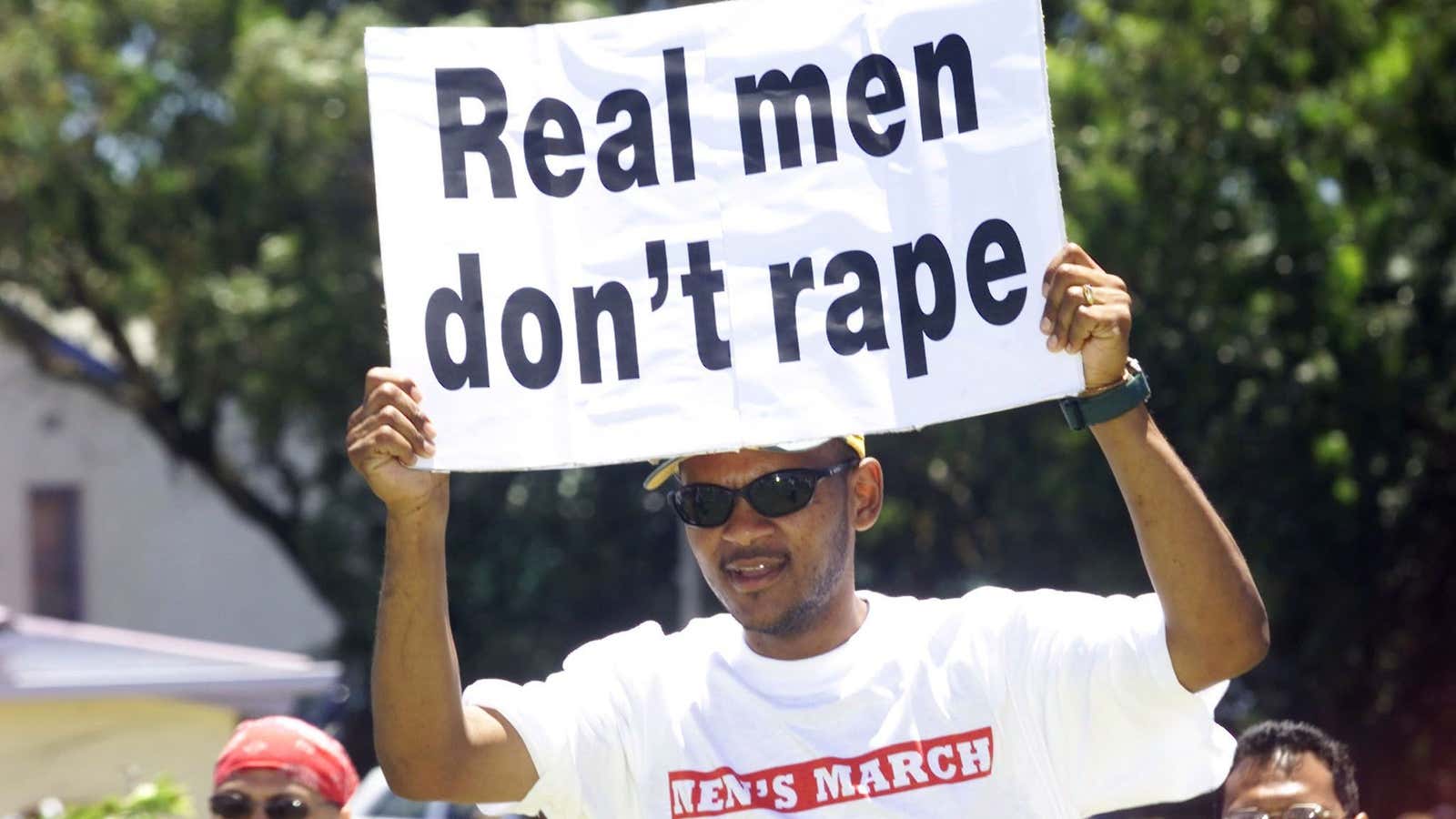Technology has added a new dimension to an old South African problem, violence against women.
Like much else about the country, South Africa is stuck between progression and regression. It has the public discourse and legislation to air issues of gender violence, but the consequent actions fall far behind. The manner in which these public incidents have played out are a glimpse of the lacking response left for women without the public platform.
In an Instagram live feed in the early hours of Monday morning, fans on Babes Wodumo’s page watched her set up her cellphone in a dimly lit room. She walked away and soon shouting could be heard off-camera. She returned, visibly anxious and was followed by a man who slapped her several times.
Many saw it as a cry for help. The singer is known as the Queen of Gqom, the genre of dance music that has dominated South African charts. Born Bongekile Simelane, Babes Wodumo’s sound made it all the way to Los Angeles with a BET Awards nomination in 2017 and then all the way to Wakanda, when her music was featured in Black Panther and on the Kendrick Lamar produced soundtrack.
At 25, social media is a natural platform for Simelane, but it speaks volumes about the response to gender-based violence that she had to turn to Instagram Live to broadcast her abuse.
As her star climbed, very public rumors swirled that her partner and fellow musician Mandla “Mampintsha” Maphumulo. In May last year, Wodumo was ambushed on national radio when a DJ asked her about Maphumulo allegedly breaking her leg and her nose. She was caught off guard but Maphumulo released a statement admitting that “he was no saint,” and their relationship continued.
This time, the abuse became a national spectacle. The arts and culture minister tweeted at her, urging Simelane to press charges. The police minister followed, asking local authorities to look into it. The leader of the opposition, Mmusi Maimane challenged Maphumulo to “three rounds in a boxing ring.” He was one-upped by the Economic Freedom Fighters, who laid criminal charges against Maphumulo. The ruling African National Congress was last, releasing a tamer press statement.
Then Wodumo’s father held an impromptu but explosive press conference, accusing Maphumulo of ongoing physical and financial abuse. He alleged that Maphumulo controlled and squandered the money the singer and dancer had made from the Black Panther soundtrack. Simelane was a no-show at her own presser the next day, but Maphumulo used his appearance at a police station to tell journalists that he was only protecting himself in a volatile relationship. He laid a counter-charge—a now classic move in cases like this.
For her part, Babes Wodumo took to Instagram again, this time to post an image of herself and Karabo Mokoena, the woman whose murder had caused similar headlines in 2017. Her hashtag, #ImWalkingAway was courageous but showed the flaws of the social media-driven conversation on gender-based violence.
The trending topics and likes could make it seem that this is an issue that South African’s tackle head on, but the public discourse only shows how powerless South African women still are, particularly women of color. They are most affected by poverty and joblessness, and are therefore more vulnerable to crime and exploitation.
Violence against women is publicly condemned and harshly legislated, but the laws are not enough to change attitudes toward women. Just take the political parties who chimed in. The EFF and ANC are embroiled in their own scandals. Two of the ANC’s spokesmen have been suspended after being accused of sexual harassment and rape. Amid the two scandals, the ANC was found to have no internal policy against sexual harassment.
Just days after coming to Babes Wodumo’s defence, EFF leader Julius Malema tweeted journalist Karima Brown’s phone number, accusing her of being a spy for the the ANC. His supporters responded by threatening her with acts of rape via WhatsApp and racially abused her on Twitter. It isn’t the first time Malema’s calling out of female journalists has led to misogynistic threats.
On social media, some men attacked Wodumo for staying out late, others called Brown a witch, while even more reduced the ANC scandals to election polticking. These three cases are, of course, very different, but they all show how vulnerable South African women still are.
Sign up to the Quartz Africa Weekly Brief here for news and analysis on African business, tech and innovation in your inbox
